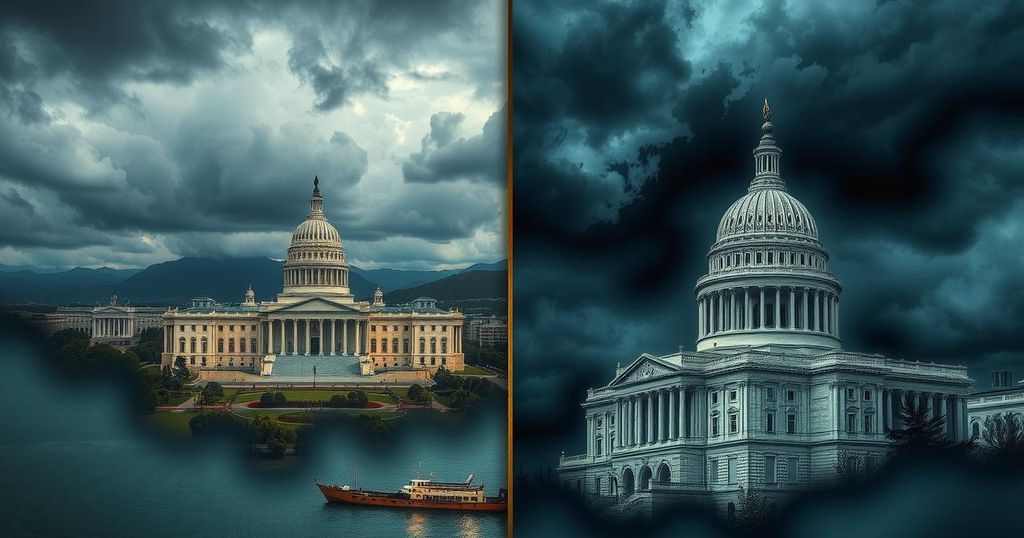The article examines the parallels between the crises facing democracy in America and South Africa. It highlights the challenges faced by Republicans in the U.S. in relation to the changing demographics and the need for accommodating the evolving majority, paralleling the historical choices of white South Africans during apartheid.
The current political climate in both America and South Africa reveals startling parallels regarding the future of democracy. In South Africa, the legacy of apartheid highlighted a critical juncture for white populations, demanding their choice between adaptation to a changing demographic majority or continued resistance. Similarly, today’s Republicans in the United States find themselves at a crossroads, where they must either embrace the evolving majority or face the consequences of increased opposition and voter suppression tactics which threaten the democratic process.
The notion of intransigence is underscored by historical examples where groups, entrenched in power, resisted necessary change. This historical context reflects the urgent need for political parties to engage constructively with emerging social changes rather than resorting to divisive strategies that ultimately undermine democracy. Recognizing the shifting landscape is crucial for the sustainability and integrity of democratic institutions.
In summary, the challenges facing democracy in both America and South Africa underscore the importance of embracing change rather than resisting it. Political forces must acknowledge the dynamics of demographic shifts and engage in constructive dialogue to safeguard democratic principles. Failure to adapt may lead to intransigence, further division, and the erosion of democratic values.
Original Source: www.inquirer.com




